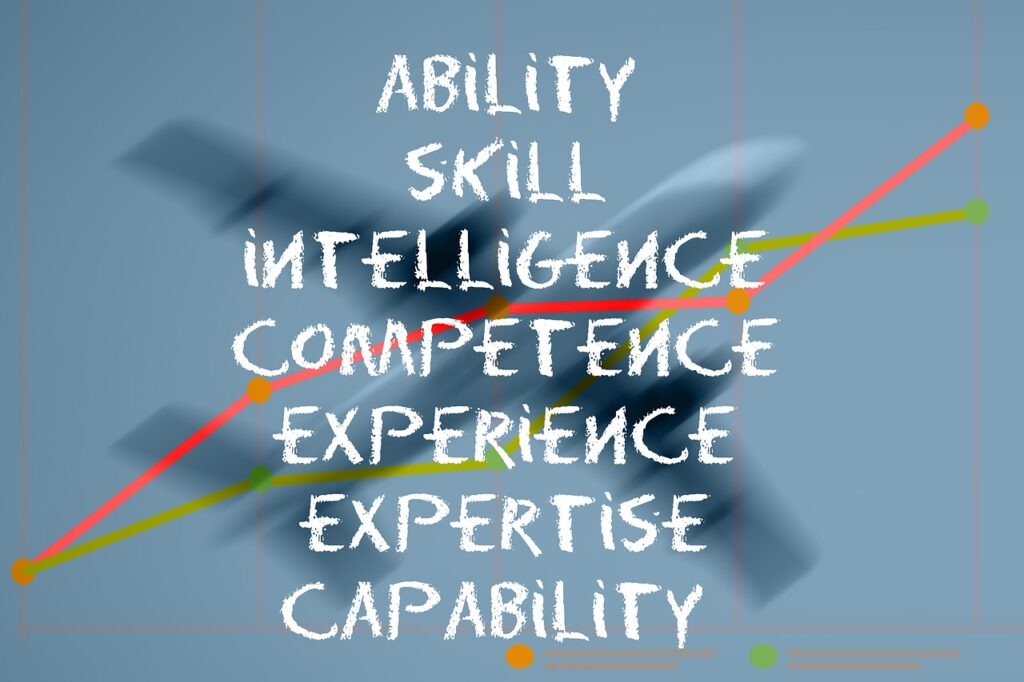Technical skills have become increasingly important in today’s workforce. Possessing the right technical skills can set you apart from other job applicants and improve your chances of securing your desired position. This blog post aims to help job seekers like you identify and showcase the most important technical skills on your resumes, ensuring that you stand out in the competitive job market.
Platforms and Schools To Learn Technical Skills

Udacity
Programs and courses in Artificial Intelligence, Cybersecurity, Programming Languages, Product Management, Cloud Computing, and many more.

Springboard
Programs and Courses in AI & Data, UI/UX Design, Cybersecurity, Tech Sales, and Software Engineering.

Tech Bootcamps from ed
Coding, Artificial Intelligence, Cybersecurity, Data Analytics, Tech Project Management, UX/UI, and many more.
The Increasing Demand for Technical Skills
As technology continues to play a crucial role in the workplace, it has led to the automation of routine tasks and increased efficiency and productivity. This shift has not only changed the way people work but also the job requirements. Employers are now placing more emphasis on problem-solving and critical thinking skills, as well as the ability to adapt to new technologies.
According to recent statistics, the demand for technical skills is on the rise. Job growth projections in technology-related fields indicate a promising future for those with the right skill set. Additionally, a significant percentage of job postings now list technical skills as requirements, further underscoring the importance of these abilities in today’s job market.
Identifying the Most Important Technical Skills for Your Industry
Understanding the most valuable technical skills for your industry is crucial to staying competitive in the job market. Here are some steps to help you identify these skills:
First, research industry-specific technical skills using online job postings and career websites. These resources often list the required skills for various positions, providing insight into what employers are looking for. Additionally, professional organizations and industry publications can also shed light on the most sought-after skills in your field.
Next, networking with professionals in your industry can help you gain firsthand knowledge of the technical skills in demand. Attending conferences and events, as well as reaching out to industry contacts on LinkedIn, can provide valuable insights and keep you informed about the skills you need to develop.
Finally, staying informed about emerging trends and technologies is essential to maintaining a competitive edge. Follow news outlets and blogs, and participate in online forums and discussions related to your industry. This will not only keep you updated on the latest advancements but also help you identify the technical skills necessary to adapt to the ever-evolving landscape.

Technical Skills in Information Technology (IT)
In the rapidly evolving field of information technology, various technical skills are highly sought-after by employers. One such skill set includes proficiency in programming languages like Java, Python, and C++. Mastering these languages enables IT professionals to develop software, applications, and other digital tools tailored to their organization’s needs.
Another essential area of expertise is network administration and security. IT specialists must ensure that computer networks function smoothly, securely, and efficiently. This involves monitoring and maintaining systems, troubleshooting issues, and implementing protective measures against cyber threats.
Data analytics and database management are also crucial in the IT industry. Professionals skilled in collecting, analyzing, and interpreting large data sets can help their organizations make data-driven decisions and improve overall performance. Familiarity with database management systems, such as SQL, is often required to store and manage this information effectively.
Finally, cloud computing and virtualization have become increasingly important in recent years. These technologies allow organizations to streamline operations, reduce costs, and improve accessibility to digital resources. Developing expertise in cloud platforms, like AWS or Azure, can significantly enhance your value as an IT professional.
Technical Skills in Design and Multimedia
In the design and multimedia realm, a variety of technical skills are essential for success. For instance, graphic designers must be proficient in software such as Adobe Creative Suite, which includes Photoshop, Illustrator, and InDesign. These tools enable designers to create visually appealing and effective marketing materials, websites, and other digital assets.
Web design and development skills are also vital for professionals in this field. Knowledge of HTML, CSS, and JavaScript allows designers to build and maintain visually engaging and user-friendly websites. As the digital landscape continues to expand, these skills are increasingly in demand across various industries.
Video editing and animation are other essential skill sets in design and multimedia. Proficiency in software like Final Cut Pro and After Effects allows professionals to produce high-quality videos and animated content, engaging audiences and strengthening brand identity. As video consumption continues to rise, these skills become more valuable in the job market.
Lastly, user experience (UX) and user interface (UI) design skills are crucial in crafting intuitive and user-centric digital products. UX design focuses on optimizing usability, while UI design deals with the visual aspects of an application or website. Together, these skills ensure seamless interactions between users and digital platforms, enhancing overall satisfaction and product success.

Technical Skills in Engineering and Manufacturing
Engineering and manufacturing professionals require a diverse set of technical skills to excel in their roles. One crucial skill is proficiency in computer-aided design (CAD) software, which enables engineers to create and modify designs, perform simulations, and analyze product performance. CAD tools are widely used across various engineering disciplines, including mechanical, electrical, and civil engineering.
Project management software, such as Microsoft Project, is another important skill in this field. Engineers and project managers must coordinate and track complex projects, ensuring timely completion and efficient resource allocation. These tools facilitate communication, scheduling, and reporting, streamlining project execution.
Quality control and process improvement methodologies, like Six Sigma, are essential in the engineering and manufacturing sectors. These approaches focus on identifying and eliminating sources of error, variation, and inefficiency in production processes, ensuring high-quality products and cost-effective operations. Professionals skilled in these methodologies are highly valued by organizations looking to optimize their manufacturing processes.
Finally, robotics and automation technology play a significant role in modern engineering and manufacturing. As industries increasingly adopt automated systems and robotics, professionals with expertise in these technologies can drive innovation and improvements in productivity, safety, and overall performance.
Technical Skills in Finance and Accounting
Professionals in finance and accounting need to master a variety of technical skills to succeed in their roles. For instance, financial software, such as QuickBooks and Excel, is essential for managing financial data, tracking transactions, and generating reports. Proficiency in these tools enables professionals to maintain accurate records and support decision-making processes.
Data analysis and visualization tools, like Tableau, are also vital in finance and accounting. These applications help professionals analyze and present complex data in a visually accessible format, allowing for clearer insights and more informed decision-making. As the volume of financial data continues to grow, the ability to effectively analyze and interpret this information becomes increasingly valuable.
Risk management and compliance software play a crucial role in identifying, assessing, and mitigating financial risks. These tools help organizations ensure compliance with regulations, reduce potential losses and maintain the integrity of their financial operations. Professionals skilled in these technologies can effectively safeguard their organization’s financial health.
Lastly, financial modeling and forecasting are essential skills in accounting and finance. These techniques involve creating mathematical models to predict future financial performance and inform strategic planning. Professionals with expertise in financial modeling and forecasting can help organizations navigate financial uncertainties and capitalize on growth opportunities.

Technical Skills in Healthcare and Life Sciences
In the healthcare and life sciences fields, technical skills are essential for ensuring efficient and effective patient care, research, and data management. One such skill is the ability to navigate electronic health records (EHR) systems, which store and manage patient information digitally. Professionals who can efficiently use EHR systems contribute to streamlined patient care, improved communication, and enhanced overall healthcare quality.
Medical imaging technology, such as MRI and CT scans, is another crucial skill set in these industries. Professionals who understand and operate these advanced imaging tools can accurately diagnose and treat various medical conditions, improving patient outcomes and overall healthcare efficiency.
Laboratory information management systems (LIMS) are vital for managing and organizing data generated in research and clinical laboratories. Professionals skilled in using LIMS can effectively manage samples, track experiments, and maintain the integrity of lab data, ensuring research accuracy and reproducibility.
Finally, research and data analysis software, like SPSS and SAS, play a significant role in healthcare and life sciences. These tools enable professionals to analyze complex datasets, uncover patterns and trends, and make data-driven decisions. As the volume of health and research data continues to grow, expertise in these software applications becomes increasingly valuable in driving innovation and improving patient care.
Showcasing Technical Skills on Your Resume
Effectively showcasing your technical skills on your resume is essential to capturing the attention of potential employers. Here are some strategies to help you present your technical skills in the best possible light:
First, create a dedicated technical skills section on your resume. List your skills in order of relevance to the job you’re applying for, and tailor this section for each job application. This will help employers quickly identify your most valuable skills and understand how they align with the position.
Next, incorporate your technical skills throughout your resume by demonstrating your proficiency in the context of your work experience. Highlight specific accomplishments and achievements that showcase your technical abilities, making sure to relate them to the job requirements.
Finally, provide evidence of your technical skills by including certifications and training programs on your resume. Additionally, consider showcasing your skills through an online portfolio or personal website. These platforms allow you to present examples of your work and demonstrate your expertise in a more engaging and interactive manner.
By following these strategies, you can effectively showcase your technical skills on your resume and increase your chances of landing the job you desire.
Continuously Developing and Updating Your Technical Skills
In the ever-evolving technological landscape, lifelong learning is crucial to staying competitive in the job market. Continuously developing and updating your technical skills is essential for both personal and professional growth. Here are some strategies to help you stay ahead:
Pursue relevant certifications and training programs to expand your skill set. Online courses and workshops provide flexible learning opportunities, while professional development programs offered by your employer can help you stay current with industry trends and best practices.
Staying informed about advancements and trends in your industry is also vital. Networking with professionals in your field can offer valuable insights and keep you updated on emerging technologies. Participating in industry-related events and conferences allows you to learn from experts, discover new opportunities, and stay connected with the latest developments.
By committing to continuous learning and staying informed about your industry, you can ensure that your technical skills remain relevant and in-demand, ultimately advancing your career and enhancing your professional value.
Ready To Update Your Tech Skills?
Technical skills are of paramount importance in today’s job market. As technology continues to shape the workplace, it is crucial for job seekers to develop and showcase their technical skills on their resumes. By doing so, you can differentiate yourself from other applicants and improve your chances of securing the right opportunities. Remember to continuously develop your technical skills and stay informed about industry trends. Seek out resources and opportunities, such as those provided by Pathways to Advancement, to further enhance your skillset and advance your career. By committing to lifelong learning and leveraging valuable resources, you can navigate your education and career decisions with confidence and ensure you meet your career goals.



